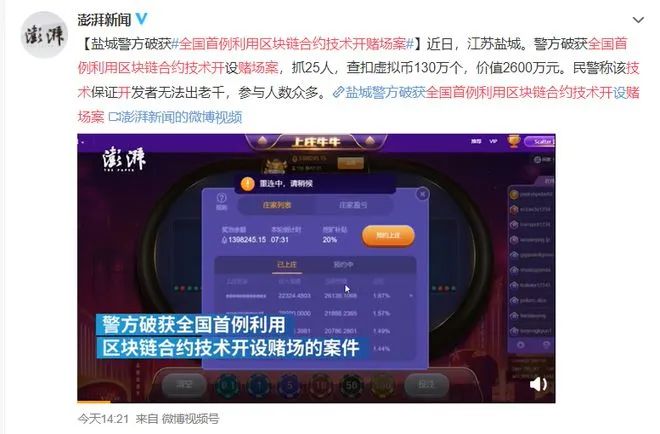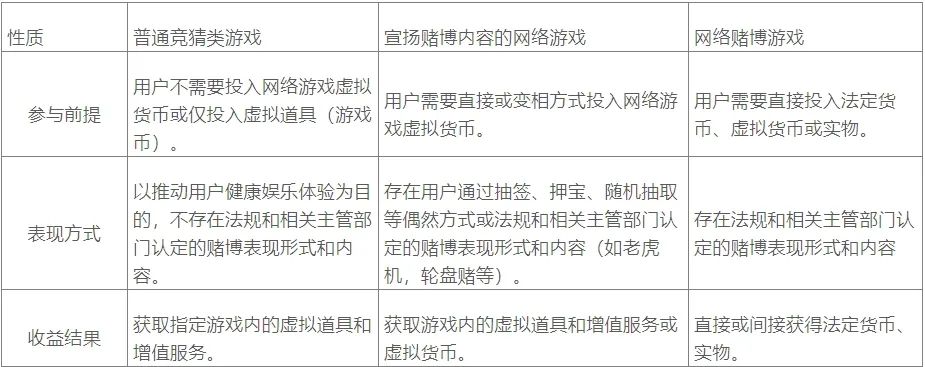Introduction
In the context of China's policy and regulatory environment, blockchain game entrepreneurs need to be mindful of avoiding gambling risks from a compliance perspective.
During a press conference held by the Supreme People's Procuratorate on November 29, 2021, it was explicitly stated that "applications suspected of gambling have a significant feature, which is the presence of cash withdrawal functionality."
The basic model of blockchain games, "play to earn," refers to players being able to earn in-game tokens by playing games, which can be exchanged for virtual currencies such as Tether, and the majority of blockchain game users are not playing for the sake of playing, but rather to buy low and sell high to make money from the in-game tokens.
So, based on the description provided by the Supreme Procuratorate, does this mean that the "play to earn" model of blockchain games inherently possesses gambling characteristics? This article will explore this issue.
Cases of Gambling-Related Blockchain Games
Fomo3D, which generated 70 million yuan in just 16 days, is a game based on the Ethereum network, with its core gameplay being "auctioning." Each time a player raises the bid, it refreshes the game countdown, and the final bidder receives 48% of the Ether prize pool. This "big fish eats small fish" game reportedly had a monthly turnover of 170 million yuan.
Biggame—China's first case of establishing a casino using blockchain contract technology—is an app developed by domestic personnel. Users install the Citrus Coin wallet, exchange RMB for Citrus Coin, and then the app provides various gambling games for players to place bets.

What Kind of Games Constitute Gambling?
There is no explicit provision in Chinese law regarding what types of online games constitute gambling. However, we can summarize based on relevant laws and policies.
According to the 2020 notice issued by the General Office of the Ministry of Culture on the issuance of the "Guidelines for the Supervision and Law Enforcement of Virtual Currency in Online Games," the main differences between ordinary guessing-type online games, online games containing gambling content, and online gambling games are as follows:

From this table, we can conclude that if an online game involves gambling, it should simultaneously meet three criteria:
- Prerequisite for participation: Users need to pay to purchase in-game items/game currency.
- Mode of operation: The gameplay involves chance, and users participate in the game by "betting small to win big," with the possibility of loss.
- Profit outcome: Users obtain fiat currency directly or indirectly through withdrawals.
How to Determine if a Blockchain Game Involves Gambling?
Taking into account the above three criteria, let's analyze the characteristics of blockchain games.
1. Paying to purchase in-game items/game currency.
The vast majority of blockchain game platforms require users to purchase in-game items or tokens through payment. The specific process involves: first purchasing virtual currency with fiat currency through exchanges (such as Binance, OKEX, etc.); then downloading a wallet (TokenPocket, MetaMask, etc.) and transferring the purchased virtual currency to the wallet; after connecting the wallet to the blockchain game, users can purchase in-game items or tokens through the wallet on the platform.
Even if a small number of blockchain games initially claim to be free, it is a promotional tactic to attract users, and users still need to spend money for a better gaming experience.
2. Ability to withdraw directly/indirectly and obtain fiat currency.
For overseas blockchain game projects, users can withdraw NFTs or in-game tokens on the platform into virtual currency on exchanges. In China, due to the country's regulations on virtual currency, which stipulate that virtual currency does not have legal tender status and is a virtual commodity, and in accordance with relevant gaming laws [1]: "Services that provide game point transactions, exchanges, or cash exchanges through 'virtual currency' or similar means are not allowed."
Therefore, for blockchain games developed in China, if the in-game tokens support exchange for virtual currency (withdrawal), then, in combination with the characteristic of depositing (mentioned in point 1), it meets the criteria for gambling-related deposit and withdrawal.
3. Gameplay: Chance, "betting small to win big," possibility of loss.
Currently, types of blockchain games mainly include: nurturing, simulation management, sandbox, card, mining, competitive, etc. The different categories do not distinguish whether a game involves gambling; it depends on the specific gameplay of the platform.
For example, blind boxes, lottery draws, and similar gameplay involve a significant element of chance in whether users win or lose. If the game items obtained by users through paid draws have a significant difference in value, there is a possibility of loss, indicating a high gambling risk.
Recommendations from Lawyer Mankun
Due to the incomplete state of laws and regulations related to blockchain and the metaverse in China, and the negative stance on virtual currency and mining in relevant policies, if a project plans to launch blockchain game products in China, it is essential to strictly control legal and procedural risks both before and after the product launch.
Before the launch, a rigorous risk assessment of the game mechanism is necessary to prevent gambling-related risks.
After the launch, regular monitoring of product data is required to prevent users from exploiting platform vulnerabilities for gambling.
Additionally, attention should be given to user complaints and reports. If any gambling-related behavior is discovered, prompt optimization and improvement of the product are necessary.
免责声明:本文章仅代表作者个人观点,不代表本平台的立场和观点。本文章仅供信息分享,不构成对任何人的任何投资建议。用户与作者之间的任何争议,与本平台无关。如网页中刊载的文章或图片涉及侵权,请提供相关的权利证明和身份证明发送邮件到support@aicoin.com,本平台相关工作人员将会进行核查。




